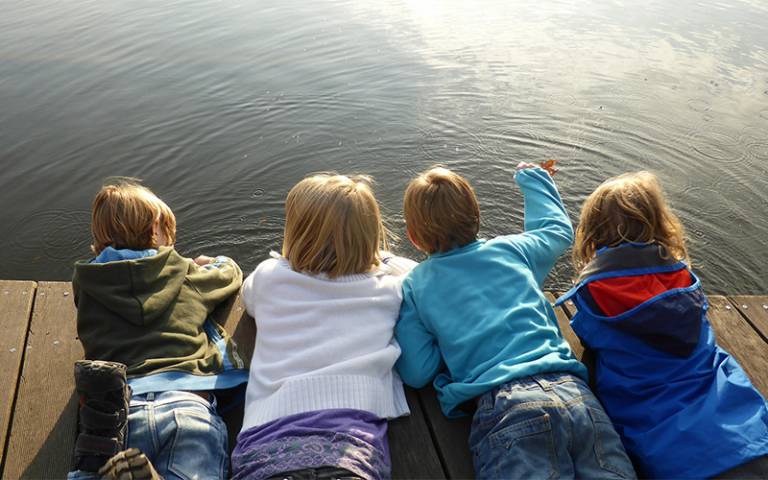Disabled children’s siblings provided more care in lockdown
13 April 2021
43% of families reported disabled children’s brothers and sisters provided more care for them during the third national lockdown in the UK, according to new research by UCL Institute of Education (IOE) and charity Sibs.

The research, conducted by Dr Georgia Pavlopoulou and Clare Kassa, looked at survey responses from 640 parents about the experiences of disabled children’s siblings under the age of 18 during the third national lockdown.
81% of parents said their sibling child’s mental health had worsened, and 40% of siblings were feeling isolated and missing support from family and friends.
The survey follows on from initial research conducted last year, which found that lockdown severely impacted siblings’ wellbeing.
Over half of parents surveyed (53%) said that respite or a break would have helped siblings cope.
Dr Pavlopoulou said:
“The least-studied familial relationship before and during the lockdown is the sibling relationship. Our data suggest that limited support is currently provided in relation to the coronavirus pandemic to siblings of disabled children and their families.
“Siblings have had limited or no access to close friends, extended family members and community groups, and many are experiencing high levels of loneliness. Chronic loneliness and social isolation have become recognised as a serious public health issue. Siblings are at higher risk of loneliness or lack of social support due to unexpressed emotions, fear of stigma, worries and awareness of community’s prejudice against developmental and health problems that their brother or sister face, and fear of rejection. During the pandemic siblings are worried about their parents who also reported challenges with their own mental health and self-care.
“Most importantly the survey highlights the protective role of belonging and the important role schools, educational psychologists and local communities may play in providing opportunities to respite services and foster peer connections. Mental health professionals working with neurodivergent families need to consider how their teams may offer space to all family members, including siblings, to process and work through their emotions in constructive ways as well as practical family support such as respite time.”
Clare Kassa, Chief Executive at Sibs said:
“We were well aware from our report published in May last year, that the first lockdown for siblings of disabled children had been traumatic, isolating and difficult. Our new report confirms that although some things had changed or improved, overall the mental health impact has, if anything, become worse. Services and support were patchy at best, and yet again, siblings were so often just not seen as needing any extra help. As one parent told us: “They (siblings) are forgotten about more than the disabled child and the disabled child has been forgotten, so that says it all”.
“Siblings should not be the forgotten children. We call on government to make sure that siblings of disabled children are recognised as children in need of recovery support, as part of a whole family approach.”
Links
- Read the report: ‘Lonely Lockdown. Life for siblings of disabled children in the UK’
- View Dr Georgia Pavlopoulou’s research profile
- Department of Psychology and Human Development
- Sibs
Image
Image: EME via Pixabay
 Close
Close

